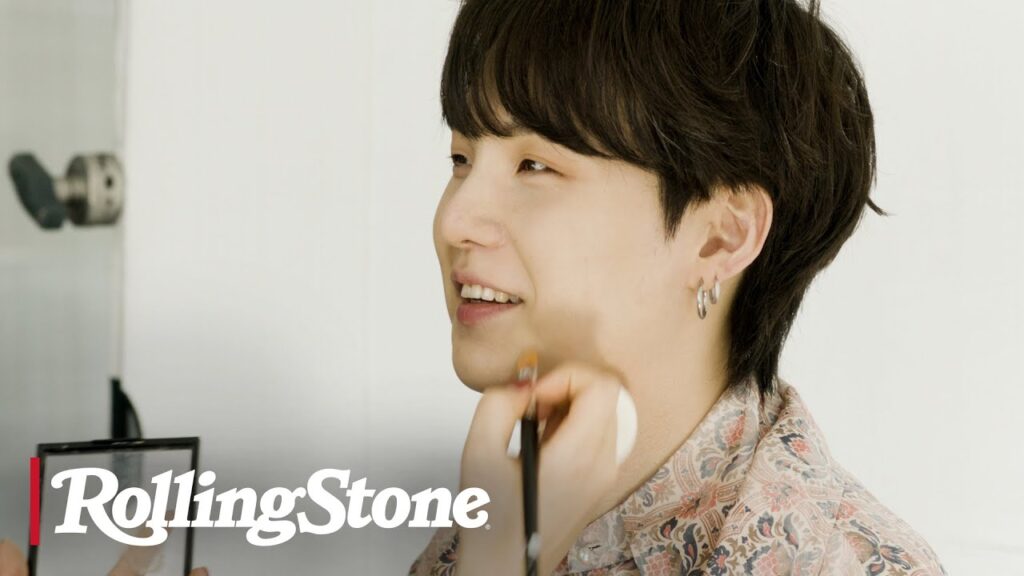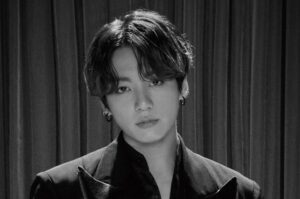BTS Suga shares his hunger towards music with Rolling Stone

BTS’ Suga: ‘Rolling Stone’ Digital Cover Story – Rolling Stone
Suga is an essential component of BTS’s collective creative spirit. In April, he sat in the headquarters of his company, wearing a grey knit hat, a white mask, and a black parka, and talked about his struggles with depression, his songwriting process, being hungry despite winning the world, and much more.
Late last year, you had surgery for a shoulder injury that I think goes back to your trainee days. What are your thoughts?
That’s even healthier. I do need to do some physical therapy, but I’m doing much better. And, yes, I was injured in an accident when I was 20 years old, and as my condition worsened, it was suggested that I have surgery. Fortunately, I had some spare time to have this operation performed. But that’s just what we did.
It’s incredible that you’ve been practicing intricate choreography for all these years after your injury. How did you do that?
By the year before the surgery, I believe I was undergoing medication, injections, nearly on a monthly basis. Although there were moments when I couldn’t raise my arms or get a wide range of motion in the middle of a concert. And it wasn’t so much for the hurt. It’s all on if I’ll be able to continue doing these shows. It doesn’t even hurt when you’re really doing because of the adrenaline and whatever. You kind of feels it the next day when you feel the pain or nausea or can’t lift your arms anymore.
You’ve been frank about your experiences with depression and other issues in your music. How are you doing these days?
I’m relaxed and feeling strong right now, but all kinds of depressive feelings come and go. So it’s just as if it’s chilly outside. It could return in a year or year and a half’s time. But hearing people say that when they listen to my songs, they feel comforted and consoled by the lyrics that convey these feelings makes me very happy. It’s extremely inspiring. These feelings, I believe, do not need to be shielded from anybody. They must be debated and articulated. Whatever feelings I’m experiencing, I’m still able to share them, just as I was before.
I really like the song “First Love,” in which you talk about your early love with your piano and music. The lyrics imply that the love of music is also a cause of torment; what was going on there?
As I was working on “First Love,” I tried to express a range of feelings because first love isn’t just roses; it can even be bitter. But I was talking to Mr. Bang about how I could link the metaphor of first love to the first time I heard music. The object of the love is a piano, but it may be something – a partner, a spirit, or something else. Then I tried to display the feelings you feel.
How’s your guitar playing coming on through?
I’m back on the guitar now that my shoulder is much stronger. Of course, I’ve been practicing by singing other people’s music, and I’m hoping to be able to sing and play the guitar at the same time in the not-too-distant future. That’s what I’m aiming for.
You’ve written a lot of songs for BTS, a lot of songs for yourself, and a lot of songs for other people. What is your typical songwriting procedure?
Per song requires a unique approach. Often a word may come to mind and I will expand on that, or someone will make a request for a specific direction they would like a song to be made. We always settle on a theme and then function free from the broader overall theme that we might have. But, in general, when I work on a record, I start with the rhythm, then the melody, the rap, and finally the lyrics. That’s how I usually build them.
You and RM and J-Hope have all these wonderful double and triple entendre and another wordplay that non-Korean speakers can miss — translations can’t express it all. Is it upsetting that some of your international fans can overlook those details?
Of course, I grew up listening to American hip-hop and pop, and my English isn’t so good. So I read the lyrics as well as the translations. And, clearly, what native English speakers can consider the main lines, key sentences, and punchlines, I couldn’t understand due to linguistic complexities. And, I believe, this is an inevitable component of the language barrier. And, I believe, it is important to strive to reach a happy ground where people from all languages and backgrounds, as well as other languages, can understand it.
And we want to compose songs that are somewhere in the happy middle that can be heard by people who speak other languages. In addition, I’m learning English more and more in order to get more acquainted with it. So it would be fantastic if we could get both Korean and English speakers to appreciate the lyrics. Because, once again, it is something I am aware of.
You have a brilliant line in “Dope” about your childhood rotting in the studio. But do you ever have second thoughts about it?
I have no regrets about my studio career. Those days and times provided me with the possibilities that I have now and in the future. So there is no guilt. But every now and then, I wonder, “Why did I have to waste so much time in the studio?” [Laughter] Why couldn’t I have sped up? I was putting my nose to the grindstone. Why couldn’t I have slept or re-energized myself a little more? That is what I consider.
There’s a myth that your parents were so offended by your rapping that they ripped up your lines. What effect did it have on you?
Rap was unfamiliar to my parents. They are a generation away from me, and they never listened to rap; it was not a part of their musical tastes. So it’s only logical that they were opposed to what I was doing. And, of course, becoming a singer is a dangerous occupation. So I completely understand that my parents were opposed to what I was doing. But I believe it inspired or made me work better because I now had something to prove. I had to prove to my parents that it was possible. As a result, it pushed and inspired me to practice ever harder.
How can you keep hungry with all that BTS has achieved?
I’m one of those people who believe that people not only adapt but that people should improve. Yet I believe it is important to keep the hunger alive. But, even when we were starving, we developed habits for ourselves, and they stick with you even though you change as a human. I believe we should still rely on the lessons we discussed when we were still hungry in order to sustain the work ethic and remain hungry, even though we adapt and grow as humans. Instead of being hungry, I believe we are now hangry! [laughs] I’m angry and hungry.








